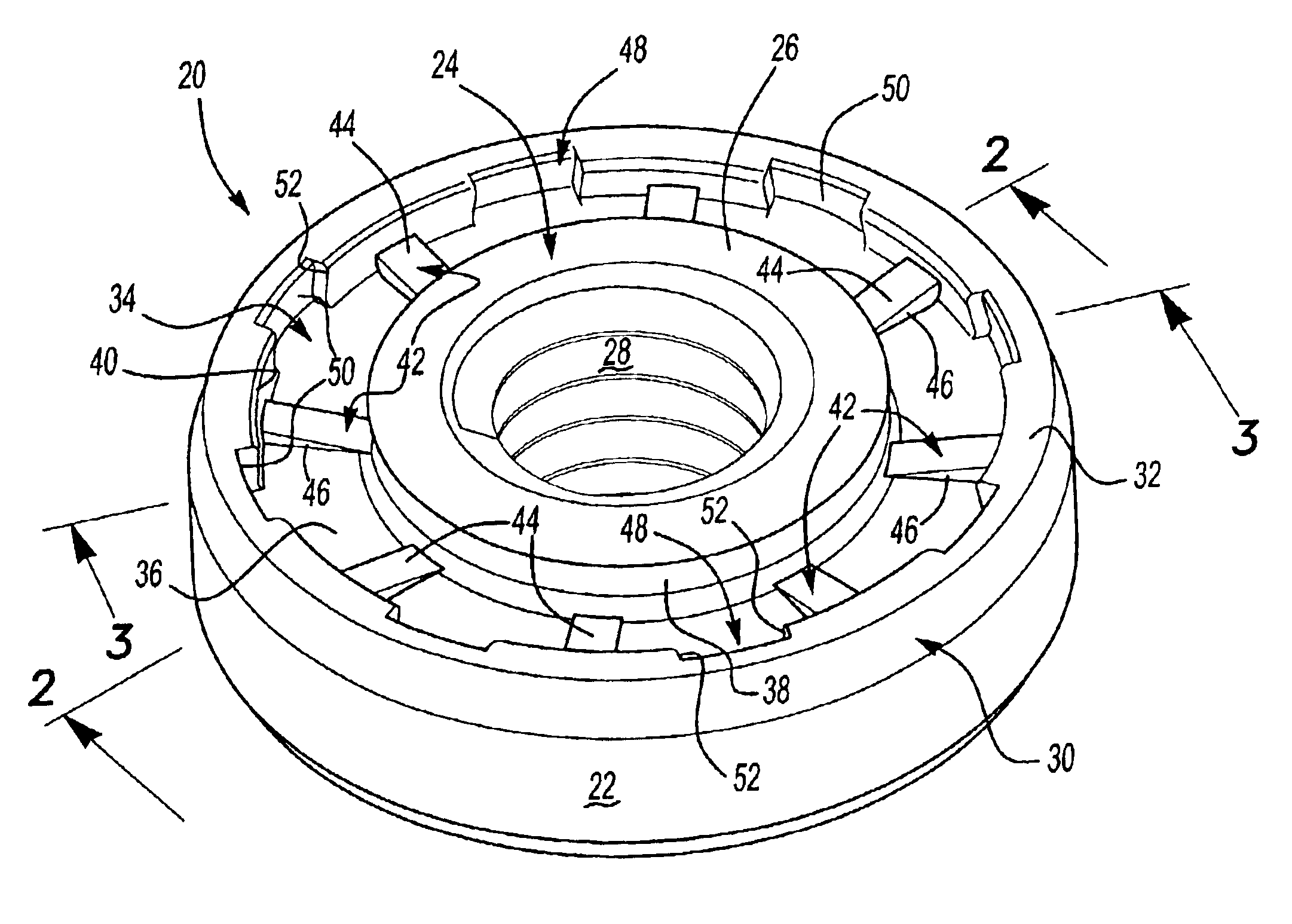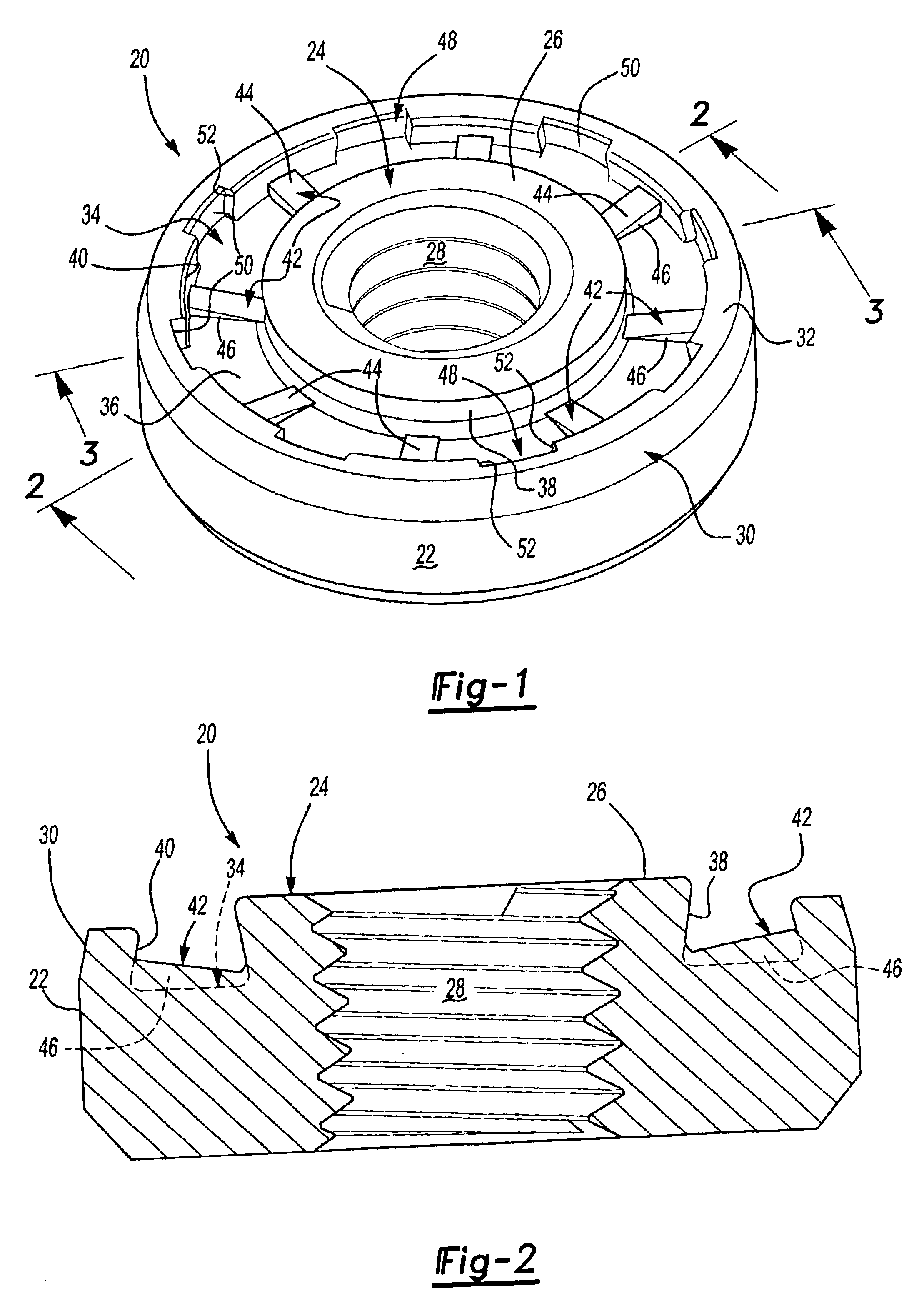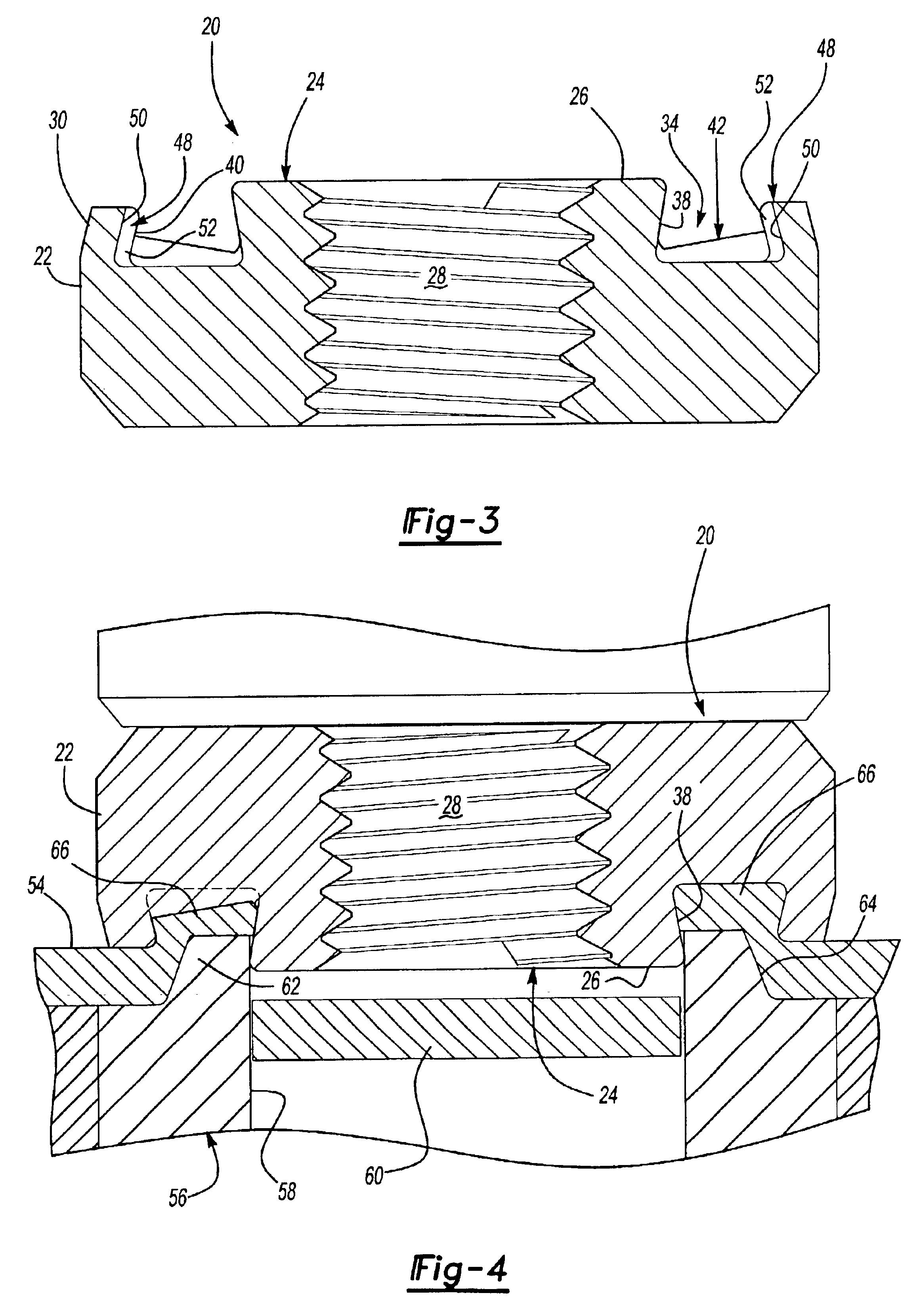Self-attaching female fastener and method of installation
- Summary
- Abstract
- Description
- Claims
- Application Information
AI Technical Summary
Benefits of technology
Problems solved by technology
Method used
Image
Examples
Embodiment Construction
As set forth above, the self-attaching female fastener element of this invention may be utilized as a pierce nut, wherein the pierce nut has improved integrity when installed in a panel, and may be formed by conventional cold header techniques. As shown in FIGS. 1 to 3, the self-attaching nut 20 of this embodiment of the invention includes a generally cylindrical body portion 22, including an annular pilot portion 24 having a planar end face including a bore 28, which may be threaded as shown. Alternatively, the bore 28 may be unthreaded for receipt of a thread forming or thread rolling bolt or male fastener (not shown). The self-attaching nut 20 further includes an annular flange portion 30 surrounding the pilot portion 24 having a planar bearing face 32 parallel to, but spaced below the plane of the end face 26 of the pilot portion. An annular groove 34 is defined in the bearing face 32 having a bottom wall 36, an inner side wall 38 and an outer side wall 40. As best shown in FIGS...
PUM
| Property | Measurement | Unit |
|---|---|---|
| Width | aaaaa | aaaaa |
Abstract
Description
Claims
Application Information
 Login to View More
Login to View More - R&D
- Intellectual Property
- Life Sciences
- Materials
- Tech Scout
- Unparalleled Data Quality
- Higher Quality Content
- 60% Fewer Hallucinations
Browse by: Latest US Patents, China's latest patents, Technical Efficacy Thesaurus, Application Domain, Technology Topic, Popular Technical Reports.
© 2025 PatSnap. All rights reserved.Legal|Privacy policy|Modern Slavery Act Transparency Statement|Sitemap|About US| Contact US: help@patsnap.com



